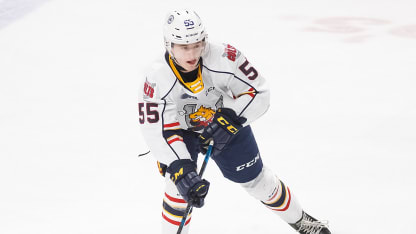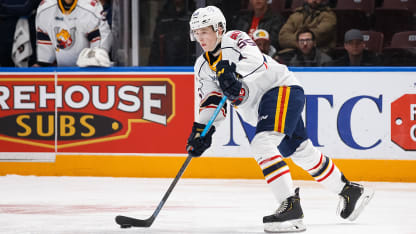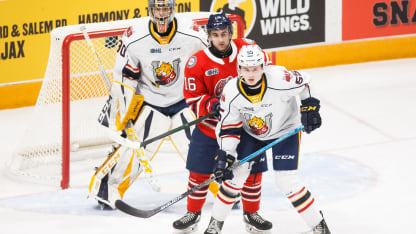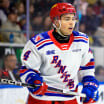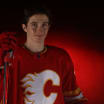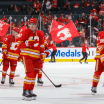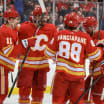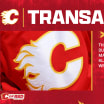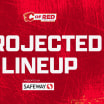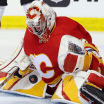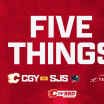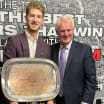Brandt's older brother, Graeme - a third-round pick of the New Jersey Devils in 2019 - was also vying for a spot on that Canadian roster, but suffered a similar fate in his hunt for a roster spot.
That set the stage for a Clarke Family first - a reunion, of sorts, halfway around the world, as both brothers were offered a spot with Nové Zámky of the Slovak Extraliga.
Never before had the two brothers played together.
But, in this - a season like no other - the divine timing seemed oddly appropriate.
"It's definitely something we'll be telling our families about in the future," said Clarke, adding the family affair ended sooner than expected.
Graeme was recalled back to North America and reported to the Devils' AHL affiliate in Binghamton for the rest of the season, leaving 17-year-old Brandt to navigate life in a new world by himself.
And yet, that might have been the best thing for him.
"I wasn't really sure how I was personally going to react to that, but I think I did pretty well for myself," Clarke said. "I didn't let it affect my on-ice play.
"When he was there with me, he was always telling me, 'OK, we're going to go to bed now,' and we'd turn off our phones. He was waking me up in the morning, too. I didn't have that anymore, so I had to (become) more independent. But I think I did a pretty good job of that living on my own - the professional hockey feeling.
"In that sense, I think I did a lot of growing up while I was over there."
His evolution between the boards was equally massive, with 13 points (6G, 7A) in 26 games, in a league where many of the players are 10, even 15 years older. While Clarke is primarily known for his offence, the 6-foot-2, 185-lb., right-shot blueliner took big strides in his defensive game as well - a must for a team that rarely blew the doors off its opponents.
"If you look into the numbers, we were the second-lowest budget team in the league," Clarke said. "So, we weren't the highest-powered team - we didn't have a lot of offence and had to win games 2-1, 3-2. It was always low scoring and we were always in a fight.
"Every shift, it was like, 'OK, if you make a mistake and it's in the back of your net, we don't have the firepower to come back and catch up.' So, everything matters. You have to get the puck out when the opportunity is there. You can't mess up that pass. If you're defending a 2-on-1, you're relied on here - you have to shut them down. The team's counting on you.
"Overall, I think being able to play against guys that are 30, 31 years old, battling in front of the net … preventing them from getting to rebounds, winning corner battles, getting better body position to spin off guys in the corners - stuff like that, that kept the puck moving north and not letting the other team create cycles, really helped develop my overall game."
